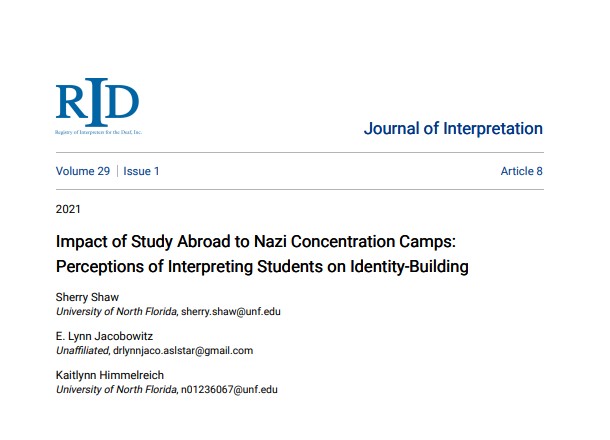Sherry Shaw, University of North FloridaFollow
E. Lynn Jacobowitz, UnaffiliatedFollow
Kaitlynn Himmelreich, University of North FloridaFollow
Abstract
This study focuses on the perceptions of post-secondary interpreting students who traveled to concentration camps, Auschwitz-Birkenau (Poland) and Schloss Hartheim (Austria). The historical context of spoken language interpreters in concentration camps, eugenics in the Deaf community, and extermination of people with disabilities underpin the study’s mixed-methods design, incorporating social identity and transformative learning theories to explore professional identity development. A Deaf, Jewish moderator-participant facilitated four focus groups using photo elicitation to foster narratives. Participants ranked photos and value statements to reveal identity components that most impacted them. A grounded theory approach to analysis revealed four themes triangulated with survey data: productive dissonance, justice and equity, communal coping, and consumer orientation. Data verified students were strongly impacted by negotiating communication with Deaf nationals, sharing disorienting experiences with colleagues, and applying Holocaust education to their personal, social, and professional identities. Results are useful for students, interpreters, and programs seeking ways to address social justice concerns through experiential learning.
Suggested Citation
Shaw, Sherry; Jacobowitz, E. Lynn; and Himmelreich, Kaitlynn (2021) “Impact of Study Abroad to Nazi Concentration Camps: Perceptions of Interpreting Students on Identity-Building,” Journal of Interpretation: Vol. 29 : Iss. 1 , Article 8.
Available at: digitalcommons.unf.edu/joi/vol29/iss1/8




